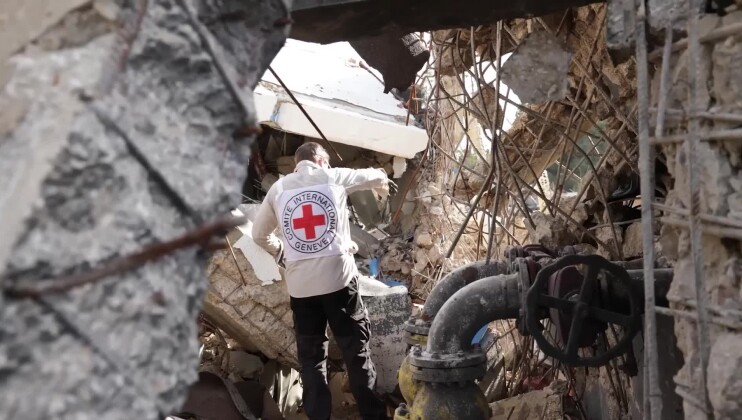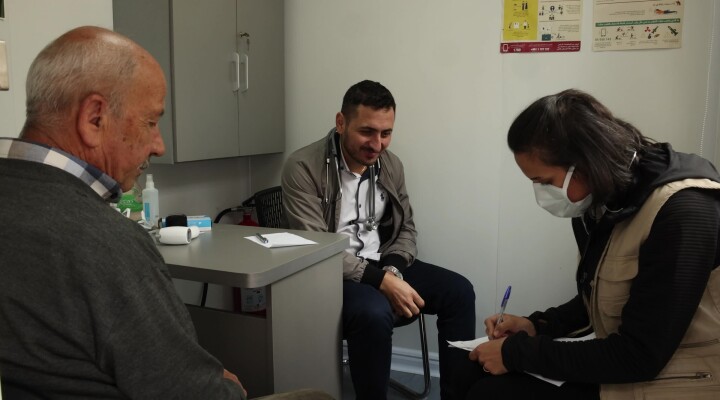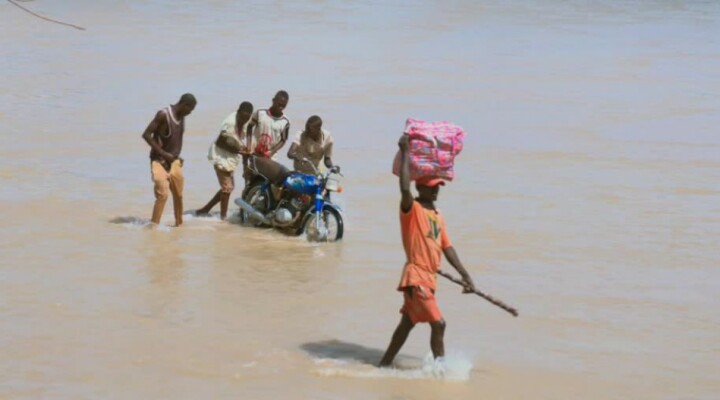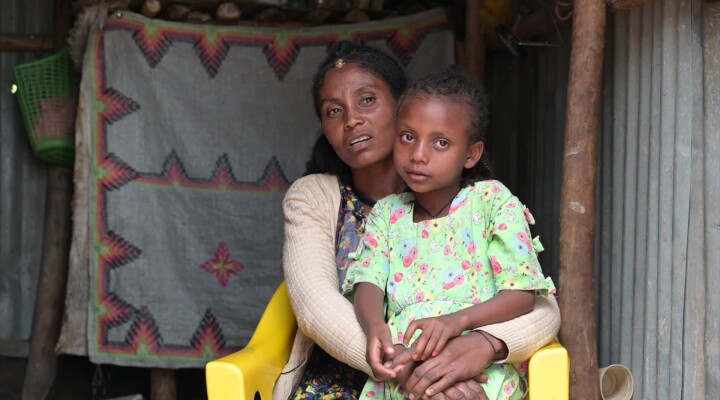World Mental Health Day: Mental Toll On Thousands Fleeing Violence In North-Eastern Nigeria
More than two million people have fled their homes in north-eastern Nigeria since the insurgency began in 2009. According to the UN Refugee agency, 60% of those displaced have witnessed killings or physical violence as well as the destruction of their homes and communities.
Many are suffering from psychological and psychosocial problems as a result of these extreme conditions.
Uprooted from their homes, young men are particularly vulnerable. Often their parents were killed in the violence, and they are now left to take the role of the breadwinner, they feel adrift in a new environment where they cannot find work and provide for themselves or look after their family.
Gambo Askaju fled his village over two years ago when friends and relatives were murdered right in front of him. As he fled, he stumbled over dead bodies.
“I dream about those who were slaughtered. Every night I relive that journey. Then I wake up terrified and struggle to go back to sleep.”
Insomnia, nightmares, signs of anxiety and depression and medically unexplained physical complaints are just some of the symptoms common to people who have experienced violence.
Gambo’s trauma is compounded by anxiety over his future. In his village, he was a farmer and animal trader. But in the town he is struggling to find work and decent accommodation.
“Here we can be denied jobs because we are not from here. We are viewed as a risk and untrustworthy.”
Gambo is one of many young men in Adamawa state who is suffering psychological and psychosocial consequences of violence, he is going to weekly mental health and psychosocial counselling. The sessions are run by the Nigerian Red Cross volunteers with training and support from psychologists from the International Committee of the Red Cross (ICRC).
“They feel alone and that people are rejecting them” explains Isabel Rivera, the ICRC psychologist.
“What we are doing is listening, and then trying to find with them solutions or positive coping mechanisms. It is a counselling group but it is also a support group.”
“I have gained a lot from the support group. Everyone shared their problems and how they tried to manage them”, says Gambo, “Since joining this group I feel better.”
The ICRC also provides mental health support for other vulnerable people such as young women, elderly men and women, and widows. Over 200 people have attended counselling sessions since May 2016 and are starting to move forward with their lives. The aim is to improve their psychological wellbeing and give them the skills to carry on with their lives.
Shotlist
Location: Yola, Adamawa state
Length: 5’52’’
Format: H264-Mov SD
Filming: ICRC AV producer Christopher Nicholas
Sound: English, Hausa
ICRC ref: AV529N
Date: 07/10/2016
Copyright: ICRC access all
00:00 – 00:12 Gambo Askaju with his friends from the mental health and psychosocial counselling group.
00:12 – 00:23 Gambo returning to house where he is staying.
00:23 – 00:36 Gambo cooking with a friend he met at the group session.
00:36 – 00:51 C/U Gambo preparing spinach
00:51 – 1.04 SOUNDBITE GAMBO ASKAJU, young man now living in Yola.
“I dream about those who were slaughtered. Every night I relive that journey. Then I wake up terrified and struggle to go back to sleep.”
1:04 - 01:21 Pan from pots to Gambo testing the food.
01:21 – 01:39 SOUNDBITE GAMBO ASKAJU, young Nigerian man living in Yola.
“Here we can be denied jobs because we are not from here or because we are IDPs (internally displaced people). We are viewed as a risk and untrustworthy.”
01:39 – 01:53 Young men arriving for mental health and psychosocial counselling group.
01:53 – 02:07 Exterior shot of room where mental health and psychosocial counselling group takes place.
02:07- 02:18 Gambo talking in group.
02:18 – 02:28 Magaji Babagari, Nigerian Red Cross volunteer, facilitating the group.
02:28 – 02:49 Group session. Pan across the room from participants to Isabel, ICRC psychologist.
02:49 – 02:57 SOUNDBITE ISABEL RIVERA, ICRC PSYCHOLOGIST
“They feel alone and that people are rejecting them”
02:57 – 3:07 Men talking in group.
3:08 - 03:18 Gambo talking in group.
3:18 – 03:35 Isabel listening to what is going on in group via her colleague Umar Mohammed.
03:35 – 03:58 SOUNDBITE ISABEL RIVERA, ICRC PSYCHOLOGIST
“What we are doing is listening, and then try to find with them solutions but also try to think or try to find what coping mechanisms they have. It is a counselling group but it is also a support group as the participants need to support each other.”
03:58 – 04:11 SOUNDBITE GAMBO ASKAJU, young Nigerian man living in Yola.
“I have gained a lot from the support group. Everyone shared their problems and how they tried to manage them.”
04:11 - 04:14 SOUNDBITE GAMBO ASKAJU, young Nigerian man living in Yola.
“Since joining this group I feel better.”
04:14 – 04:31 Gambo looking out across the landscape of Yola.
04:31 – 05:20 Gambo playing cards with friends he met at the group.
05:20 – 05:52 GVs of Yola.
ENDS



